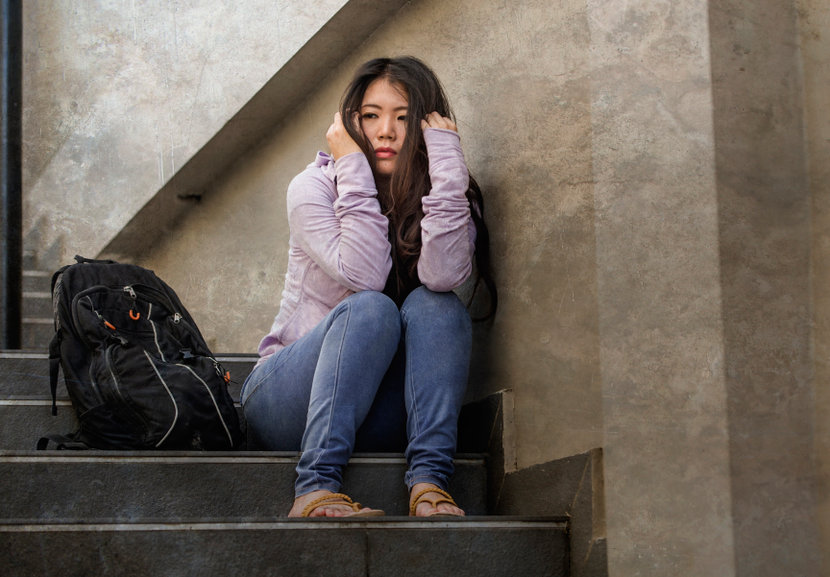What Parents Can Learn from ‘Euphoria’ Season 2

HBO’s Euphoria has taken the world by storm, captivating audiences with its raw, authentic exploration of teen substance abuse and recovery. Starring Zendaya as Rue Bennet, ‘Euphoria’ doesn’t shy away from the complexities of navigating sobriety alongside the challenges of teenhood. While this hit show fascinates both teen and adult audiences, is it actually a realistic depiction of teen drug and alcohol addiction?
What ‘Euphoria’ Gets Right About Teen Substance Abuse
Already a captivatingly gritty show in and of itself, ‘Euphoria’ has stirred up a lot of conversation around its realistic depictions of teen substance abuse and addiction. While much of ‘Euphoria’s’ plot is wrapped up in the drama of toxic teen relationships and exploring sexual and gender identiy, addiction is a throughline that ties all of the characters together. The darker and heavier topics it portrays can be distressing or triggering to some viewers, but the conversation it has sparked around the experiences of modern day teens is vitally important.
‘Euphoria’ challenges social views of addiction as a whole, forcing its audience to recognize that things are often far more complicated than we realized. None of the teens in ‘Euphoria’ are treated as ‘bad kids’ just getting high for the sake of rebellion or some moral shortcoming. Even the characters of Fez and Ashtray — the far too young drug dealers we are meant to hate — are nuanced and tangled in their own dangerous web of fear and misplaced loyalty. By granting this sense of humanity to each and every character, ‘Euphoria’ influences the audience to view them with empathy, a perspective one can only hope will translate to real life.
Our most direct view of teen substance abuse is through the protagonist, Rue. When we initially meet her at the beginning of the series she’s fresh out of rehab and immediately seeking the very drugs that sent her there in the first place. For those familiar with addiction and addiction recovery, this scene is heartbreakingly familiar. Recovery is rarely a straight path and relapse is part of the journey for many people. Rue turning back to the old and familiar habits she was meant to leave behind isn’t a failure; it’s a glaring red flag that she needs far more support and care than she received or is currently ready to ask for.

As the show unfolds we see that Rue isn’t just pill seeking for the fun of it. Her addiction flares up when she’s faced with difficult emotions or challenging situations in her life that she’s ill-equipped to manage on her own. It isn’t until she’s effectively cut off by her supplier that she seems truly ready to get help and support from a mentor — Eli, who she met through N.A. while pretending to still be sober. Even then ‘Euphoria’ doesn’t give us the Hollywood ‘grand happy ending’ of Rue effortlessly working her way through the steps and coming out the other end a shining example of the magic of recovery. She’s still struggling and ultimately relapses again at the end of season one because of her complex relationship with her best friend.
Beyond Rue, we also see the effects of teen substance abuse in our supporting cast of characters. While no one else seems to be quite as deeply impacted by addiction as Rue, they all use drugs and alcohol as a means of escape, a confidence booster, or to cope. We see the fall out of these actions in domestic violence, dubious sexual activity, and assault. While no parent wants to imagine their child in these terrible situations, ‘Euphoria’ does a fantastic job of highlighting the struggles modern teens may face without our knowledge.
What Parents Can Learn About Teen Substance Abuse from ‘Euphoria’
While some parenting organizations have called for the show to be removed from air for its portrayal of teens engaging in very adult activities, others insist that they’re missing the point. Rather than ‘glorifying’ teen substance use and underage sex as some believe, ‘Euphoria’ is an unfiltered take on serious subjects like self-harm, consent and sexual assault, and the roots of addiction in pain and trauma. Cancelling ‘Euphoria’ won’t erase the realities the show successfully highlights. It will only make it easier to ignore the warning signs and allow these things to happen beneath our noses.
The most important takeaway any parent of a teen can get from ‘Euphoria’ is that addiction is a real, complex, deeply ingrained behavioral health disorder. It is not simply choosing to get drunk or high all the time and it definitely isn’t something that will just go away. Addiction recovery is a life-long journey that requires support, guidance, and the grace to be imperfect. For teens experiencing drug or alcohol addiction, early intervention can help to divert our children from future struggles and strife.
Safe Landing Recovery is a national provider of teen substance abuse treatment based in Miami, FL. Our family-centered approach to addiction treatment keeps you involved at every level of the recovery process. Safe Landing Recovery provides weekly progress reports and encourages parent and family involvement in the treatment process with family counseling services. Our comprehensive teen rehab programs are personalized to address the specific needs of each client for lasting success in recovery. We also provide educational support and supplemental programs to help our clients transition into sober life with the skills and tools they need for a bright, healthy future. Safe Landing Recovery’s alumni program also extends our support services beyond completion of treatment to help our teens stay on track for achieving their recovery goals.
If you think your child may have a substance use problem, you aren’t alone. Safe Landing Recovery is here to help you and your family heal and grow together. Contact us today to discuss your options.

